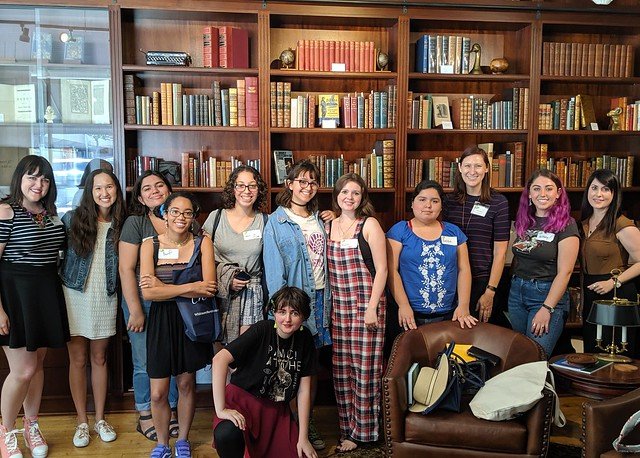Why We Must Keep Writing
By Cadence Lusinsky, WriteGirl Intern
“Why in this age has heaven allowed you more and Women less? ... Why should Women not write as well as men?”
These questions were posed by Aphra Behn, the first English woman to become a professional writer, in her 1678 play Sir Patient Fancy.
I had the opportunity to read through a first edition copy of Behn’s play at Whitmore Rare Books. WriteGirl held a workshop there for interns and alumni on July 19th. In addition to Behn’s play, we looked at pieces by Angelina W. Grimke, the first African-American woman to become a published playwright, and by Lili Elbe, the first transgender woman to go through gender reconstruction and reassignment surgery.
This workshop was empowering on so many levels. It amazed me that Aphra Behn questioned women’s rights (or lack thereof) in her writing over 300 years ago. In some ways, it’s frightening that centuries later we still have to assert the validity of women’s work. However, it’s also exhilarating to see that history is full of women like Behn, Grimke, and Elbe, who knew that they had stories worth telling despite the injustices they faced. These women serve as steady reminders that our ideas are not only valid, but important.
Nevertheless, many women did not have the opportunity to get their ideas published. Thus, my favorite part of the workshop was when we got to see the diaries of everyday women. One of the diaries we looked at was kept by Anna H. Gardner, a young woman living in Scotland during the early 1800s. After taking one look at the pages of her diary, it was no question to me whether she was an artist. In elegant handwriting, she wrote original verses. In watercolor paintings, she depicted vivid landscapes and intricate faces.
It’s incredible to think that Gardener didn’t have the opportunity to share her creations in museums or theaters during her lifetime, yet she managed to impact my life nearly 200 years later. The leader of our workshop, Miranda Garno Nesler, used the phrase “writing as activism” to describe this phenomenon. Gardner may not have had the chance to advocate for herself in the same ways more prominent figures did. However by recording her life, she asserted her own worth. She believed her point of view mattered, and now I believe it too.
I’ve often wondered if the messy verses and short dialogues that I stuff into old notebooks will ever amount to anything. But this workshop taught me that the simple act of writing ideas down is significant. From our great novels to our frayed diaries, our stories matter.




